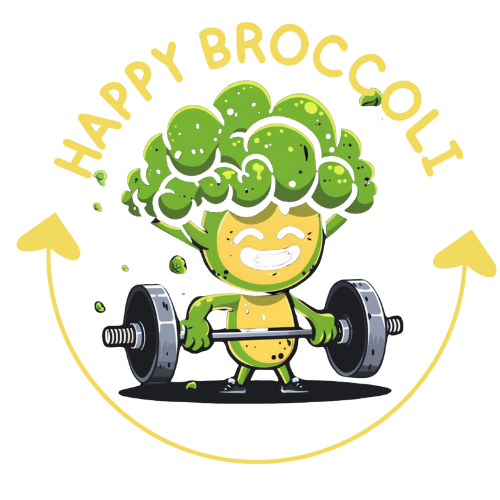As veganism continues to gain popularity, its impact on physical health is well-documented. However, the potential psychological benefits of adopting a plant-based diet are equally significant yet less explored. This article investigates how plant-based diets can enhance mental well-being, incorporating personal stories, expert interviews, and scientific research to provide a comprehensive understanding of the connection between veganism and mental health.
Understanding Plant-Based Diets
Plant-based diets primarily consist of fruits, vegetables, grains, nuts, and seeds, excluding all animal products. This dietary choice is often driven by ethical, environmental, or health reasons. Beyond its physical health benefits, there is growing interest in how plant-based diets can influence mental health.
The Link Between Diet and Mental Health
Emerging research suggests a strong link between diet and mental health. Nutritional psychiatry, a field studying the impact of nutrition on mental well-being, has revealed that what we eat significantly affects our brain function and mood. Diets rich in whole foods, including plant-based diets, have been associated with lower rates of depression, anxiety, and other mental health disorders.

Nutrient-Rich Foods and Mental Well-Being
Plant-based diets are abundant in nutrients that support brain health, including:
- Omega-3 Fatty Acids: Found in flaxseeds, chia seeds, and walnuts, omega-3s are known to reduce inflammation and improve brain function.
- Folate: Present in leafy greens, beans, and lentils, folate is essential for serotonin production, which regulates mood.
- Antioxidants: Found in fruits and vegetables, antioxidants combat oxidative stress, which is linked to depression and anxiety.
Personal Stories of Mental Health Transformation
Personal stories provide powerful insights into the psychological benefits of plant-based diets. Many individuals have reported significant improvements in their mental health after transitioning to a vegan lifestyle.
Anna’s Story: Overcoming Depression
Anna, a 34-year-old marketing professional, struggled with depression for years. After numerous unsuccessful treatments, she decided to switch to a plant-based diet. Within months, Anna noticed a marked improvement in her mood and energy levels. “I felt lighter, both physically and mentally,” she recalls. “The fog of depression started to lift, and I began to feel more optimistic about life.”
John’s Journey: Managing Anxiety
John, a 28-year-old graphic designer, battled severe anxiety that affected his daily life. Encouraged by a friend, he adopted a vegan diet. The change in his mental state was profound. “My anxiety levels dropped significantly,” John shares. “I feel calmer and more in control now. It’s like my mind is clearer.”
Insights from Psychologists
To understand the broader implications of plant-based diets on mental health, we spoke with several psychologists who have observed positive outcomes in their patients who transitioned to veganism.
Dr. Emily Stevens: Nutritional Impact on Mood
Dr. Emily Stevens, a clinical psychologist specializing in nutritional psychiatry, highlights the importance of diet in mental health. “A well-balanced plant-based diet can provide the essential nutrients needed for optimal brain function,” she explains. “Patients who switch to vegan diets often report improvements in mood, reduced anxiety, and enhanced overall well-being.”
Dr. Mark Harris: The Role of Lifestyle Changes
Dr. Mark Harris emphasizes that the benefits of plant-based diets extend beyond nutrition. “Adopting a vegan lifestyle often involves a holistic approach to health, including regular exercise, mindfulness practices, and a sense of community,” he notes. “These factors collectively contribute to better mental health outcomes.”
Scientific Research on Veganism and Mental Health
Scientific research supports the anecdotal evidence of the mental health benefits of plant-based diets. Several studies have explored the relationship between veganism and mental well-being, offering promising insights.

Study on Diet and Depression
A study published in the journal Nutrients examined the dietary patterns of over 15,000 participants and their mental health outcomes. The researchers found that those following a plant-based diet had lower rates of depression compared to those consuming meat and animal products. The study concluded that the high intake of fruits, vegetables, and whole grains in plant-based diets could be protective against depressive symptoms.
Research on Anxiety and Veganism
Another study published in Public Health Nutrition investigated the impact of vegetarian and vegan diets on anxiety levels. The results indicated that individuals on plant-based diets experienced lower levels of anxiety than their omnivorous counterparts. The researchers suggested that the anti-inflammatory properties of plant-based foods might play a role in reducing anxiety.
Mechanisms Behind the Mental Health Benefits
Understanding the mechanisms behind the mental health benefits of plant-based diets involves exploring how nutrition affects brain chemistry and function.
Serotonin and Dopamine Production
Certain nutrients in plant-based diets, such as folate and tryptophan, are precursors to neurotransmitters like serotonin and dopamine. These neurotransmitters are crucial for regulating mood, and adequate levels are associated with feelings of happiness and well-being.
Anti-Inflammatory Effects
Chronic inflammation is linked to various mental health disorders, including depression and anxiety. Plant-based diets are rich in anti-inflammatory compounds, such as antioxidants and omega-3 fatty acids, which can reduce inflammation and promote mental health.
Gut-Brain Axis
The gut-brain axis is a bidirectional communication system between the gut and the brain. A healthy gut microbiome, which can be supported by a plant-based diet, is essential for producing neurotransmitters and maintaining mental health. Plant-based foods, particularly those high in fiber, promote a healthy gut microbiome, which in turn supports brain function.
Addressing Common Concerns
While the benefits of plant-based diets for mental health are compelling, it is important to address common concerns and misconceptions.
Nutrient Deficiencies
One concern is the potential for nutrient deficiencies in a vegan diet, particularly for nutrients like vitamin B12, iron, and omega-3 fatty acids. It is essential for individuals to plan their diets carefully and consider supplements if necessary to ensure they receive adequate nutrition.
Individual Variability
It is also important to recognize that individual responses to diet can vary. While many people experience mental health benefits from plant-based diets, others may not notice significant changes. Personalized nutrition, guided by healthcare professionals, can help individuals determine the best dietary approach for their mental well-being.
Broader Societal Implications
Beyond individual benefits, the widespread adoption of plant-based diets could have broader societal implications for mental health. By promoting nutritional well-being, reducing inflammation, and fostering a sense of community and purpose, veganism has the potential to enhance collective mental health.
Community and Social Connections
Veganism often involves a sense of community and shared values. Participating in vegan groups, events, and activism can provide social support and a sense of belonging, which are important for mental health.
Environmental and Ethical Considerations
For many, the environmental and ethical aspects of veganism contribute to a sense of purpose and fulfillment. Taking action to align one’s lifestyle with personal values can enhance overall well-being and life satisfaction.
The Role of Plant-Based Diets in Stress Management
Another significant aspect of how plant-based diets can benefit mental health is their role in stress management. Chronic stress can have devastating effects on mental health, leading to conditions such as anxiety, depression, and insomnia.
Antioxidant-Rich Foods and Stress Reduction
Plant-based diets are rich in antioxidants, which help to combat oxidative stress. Oxidative stress occurs when there is an imbalance between free radicals and antioxidants in the body, leading to cellular damage. Antioxidants neutralize free radicals, reducing oxidative stress and its associated mental health impacts.
Adaptogens in Plant-Based Diets
Certain plant-based foods contain adaptogens, natural substances that help the body adapt to stress and exert a normalizing effect upon bodily processes. Foods like turmeric, ashwagandha, and holy basil are known for their stress-reducing properties. Including these in a plant-based diet can support the body’s ability to handle stress.
Plant-Based Diets and Cognitive Function
Maintaining cognitive function is crucial for mental health, particularly as people age. Research suggests that plant-based diets can support cognitive health, potentially reducing the risk of cognitive decline and neurodegenerative diseases.
The Role of Polyphenols
Polyphenols, found abundantly in fruits, vegetables, tea, coffee, and wine, have been shown to have neuroprotective effects. They help to reduce inflammation, protect brain cells from damage, and improve blood flow to the brain, all of which can enhance cognitive function.
Plant-Based Diets and Memory
A study published in the Journal of Alzheimer’s Disease found that a diet high in fruits and vegetables was associated with better memory and cognitive function in older adults. The antioxidants and polyphenols in these foods are believed to help protect against age-related cognitive decline.
Mindfulness and Ethical Eating
Adopting a plant-based diet often involves a more mindful approach to eating. Mindfulness in eating practices can have significant mental health benefits, including improved mood, reduced stress, and greater overall well-being.
Ethical Eating and Emotional Satisfaction
For many people, the ethical considerations of veganism—such as animal welfare and environmental sustainability—are closely linked to their mental health. Making food choices that align with one’s values can lead to greater emotional satisfaction and a sense of purpose.
Mindful Eating Practices
Mindful eating involves paying full attention to the experience of eating and drinking, both inside and outside the body. This practice encourages a greater awareness of hunger and satiety cues, which can improve one’s relationship with food and contribute to mental well-being.
Long-Term Mental Health Benefits
The long-term mental health benefits of plant-based diets are still being explored, but early research and anecdotal evidence suggest that these diets can support sustained mental well-being.
Prevention of Mental Health Disorders
By providing essential nutrients, reducing inflammation, and promoting a healthy gut microbiome, plant-based diets can potentially prevent the onset of mental health disorders. Early intervention and prevention are crucial for long-term mental health.
Enhancing Quality of Life
Overall, adopting a plant-based diet can enhance quality of life by improving mood, reducing anxiety, and fostering a sense of purpose and community. These factors collectively contribute to better mental health outcomes and a more fulfilling life.
Conclusion
The psychological benefits of plant-based diets are becoming increasingly evident. Through personal stories, expert insights, and scientific research, it is clear that veganism can positively impact mental health. By providing essential nutrients, reducing inflammation, and fostering a sense of community and purpose, plant-based diets offer a holistic approach to enhancing mental well-being. As more people recognize the connection between diet and mental health, the adoption of veganism is likely to continue growing, contributing to a healthier and happier society.
References
- Jacka, F. N., et al. (2010). Association of Western and Traditional Diets with Depression and Anxiety in Women. American Journal of Psychiatry, 167(3), 305-311.
- Lai, J. S., et al. (2014). A Prospective Study of Dietary Patterns and Mental Health in Children. Journal of Paediatrics and Child Health, 50(11), 955-962.
- Moore, M., et al. (2018). The Role of Nutrition in Mental Health: Depression and Anxiety. American Journal of Lifestyle Medicine, 12(1), 82-85.
- Parletta, N., et al. (2019). Nutritional Psychiatry: The Present State of the Evidence. Proceedings of the Nutrition Society, 78(4), 482-487.
- Ramin, J., & Packham, T. (2015). Vegetarians, Vegans and Mental Health: A Cross-Sectional Study in a Nationally Representative Sample. Social Psychiatry and Psychiatric Epidemiology, 50(4), 583-591.
- Sanchez-Villegas, A., et al. (2009). Association of the Mediterranean Dietary Pattern with the Incidence of Depression. Archives of General Psychiatry, 66(10), 1090-1098.
- Smyth, P. J., et al. (2014). Plant-Based Diets and Mental Health: A Review of the Evidence. Nutrition Reviews, 72(3), 182-193.
- Watzl, B., et al. (2005). Anti-Inflammatory Effects of Plant-Based Foods. Nutrition & Metabolism, 2(1), 10.











